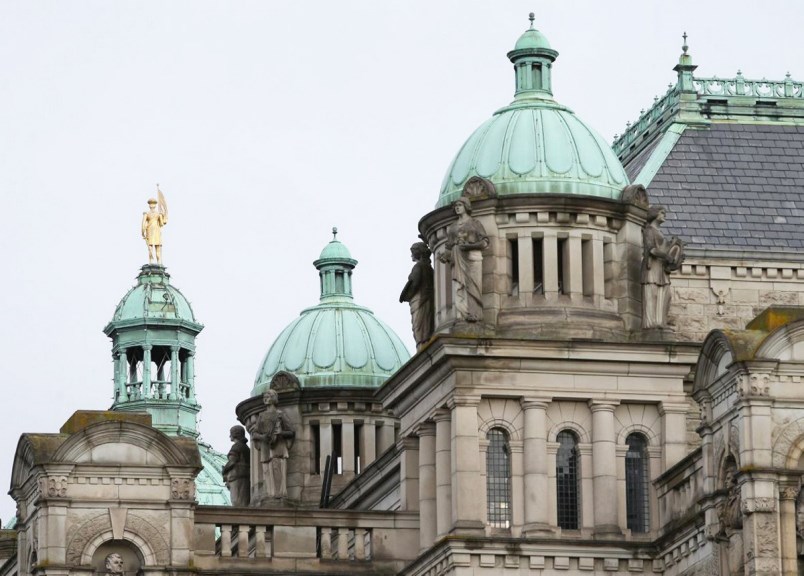Prince George Liberal MLA Shirley Bond was gracious enough last week to credit Finance Minister Carole James for retaining some of the previous government’s ideas in her budget update.
The 50 per cent cut in MSP premiums, removing the sales tax on electricity for businesses, and a tax credit for volunteer firefighters and rescuers all survived the change of government.
But there’s no question the heat is on when it comes to debating just about everything else. Bond herself followed up the appreciation with the usual warnings about the impending economic collapse the NDP is going to trigger.
The problem for the Liberals is that macroeconomic theories about fiscal prudence and dwelling on the various financial indicators bore people to tears. The standard free-enterprise warnings about NDP bumbling are stale.
The NDP hasn’t been in power in 16 years. Its new government is only three months old. There’s nothing much so far to base the doomsday predictions on, other than dim memories from the 1990s.
Even Bond confessed there’s a problem with this line of Liberal attack.
“One of the things that I have learned over my time in this house and as now a fifth-term MLA is that when you talk about a triple-A credit rating, most people’s eyes glaze over.”
There’s another line of attack for the rookie Opposition crew elsewhere in the NDP agenda. It’s on the twin pillars of the NDP-Green alliance — campaign-finance reform and changing the voting system.
Two big arguments loom. The first is on the NDP’s bait-and-switch move on campaign finance, in which it banned big money as promised, but with zero notice subbed in taxpayers’ money to subsidize parties big enough to qualify.
The second will be over the referendum on proportional representation that is being rushed to voters next year, entirely on the government’s terms with no independent view. (The only nod to the need for some impartiality is the news that the attorney general has benched himself from the upcoming arguments.)
The Liberals and NDP will spend weeks clashing about both moves, but it’s the Greens at this point who look like the big winners.
Both measures were conditions of the Greens supporting the NDP on confidence motions. And both of them confer huge advantages to the three-person caucus, which also scored party status last week by law.
The campaign-finance law not only gives the Greens a guaranteed source of income, it subtracts millions of dollars from their opponents’ treasuries. It also makes it tougher for smaller upstarts to get a foothold. There were 15 parties in the May election. The B.C. Conservatives, for example, would have to quadruple their vote before meeting the threshold for public financing.
And moving to proportional representation, if the mail-in referendum endorses whatever is presented as an option, is nothing short of the answer to the Greens’ prayers. The concept is to make the seat count in the legislature more reflective of the raw breakdown of the popular vote.
The Greens’ 17 per cent share of the vote in May got them three seats. Proportional representation could theoretically increase that to 15 seats. Advocates stress how much fairer such systems are, but there’s a huge self-interest at play, as well. It’s why the Greens initially wanted to slam it into place without even a vote. It was the NDP that insisted on a referendum.
The legislature is still in the opening rounds of the campaign-finance argument, and the Opposition is trying to build a case against it. Outside the legislature, it’s an issue in the Liberal leadership race, as well. Figuring out which NDP ideas to land on the hardest is one of the preoccupations of the eight candidates.
For a party that ignored the topic for years until it became an embarrassment, it’s quite a switch to see them reaching for the high ground.
The Liberals haven’t turned their attention to the voting change yet. But the reform is likely to include a dramatic cut in the number of ridings, and the previously protected rural ridings in the North are the obvious targets. Liberals hold almost all of them and intend to fight for them.
Greens aren’t the only ones with self-interest in play.
��



